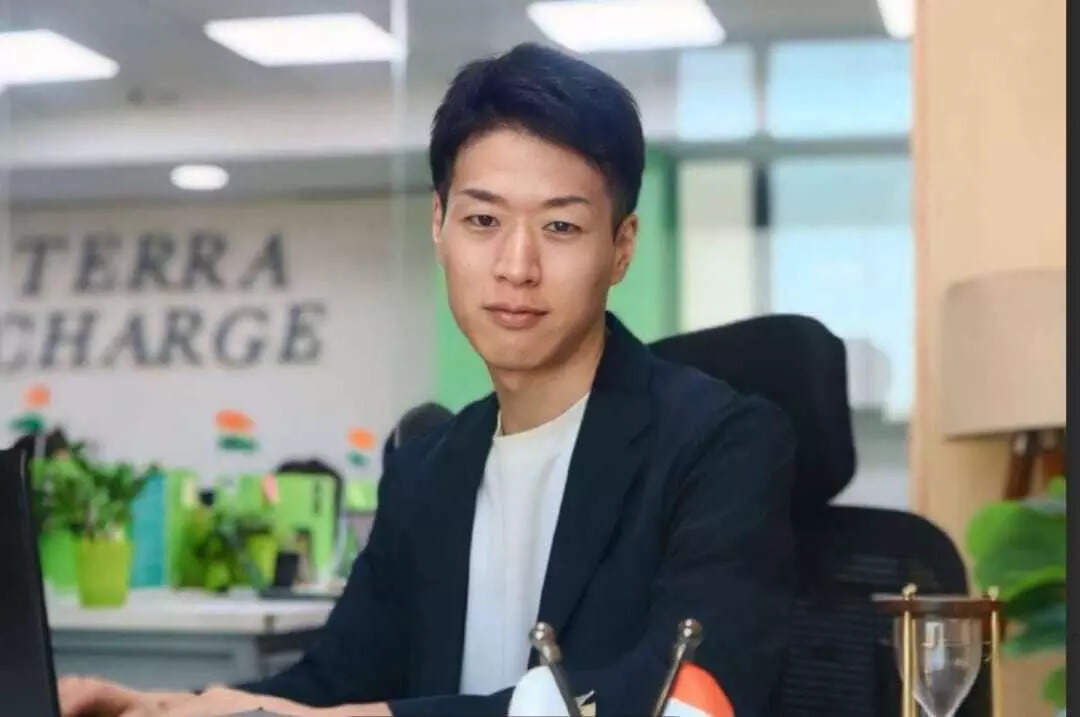[ad_1]

“India has all the right elements to drive growth in its electric vehicle (EV) industry and is poised to lead global initiatives in the sector over the next three to five years,” said Go Suzuki, managing director of Terra Charge India, in conversation with ETAuto.
He further added that from a macroeconomic perspective, nearly all Japanese companies are closely eyeing the Indian market.
Terra Charge, a charging point operator (CPO) headquartered in Japan, began operations in India in 2023. In the past two years, it has installed EV chargers at 100-150 locations, with around 500 charging stations deployed in the market by now. However, the business remains far from profitable, as the return on investment (ROI) in this sector is relatively slow.
“This is a platform business, so significant initial investment is required. Typically, we expect to wait five to seven years to reach breakeven,” said Suzuki, who is also the current CEO of both Terra Charge in Indonesia and Thailand.
Globally, the company operates its EV charging infrastructure business across four countries—Japan, Thailand, Indonesia, and India. Among these, only the business in Japan is currently profitable, as it follows a different business model where the government provides funding to investors, who then invest in companies to purchase charging stations, with local investors supporting each location.
“We expect to generate around $25 million in sales revenue annually from TerraCharge’s EV charging ecosystem business in Japan,” he said.
Still at a very nascent stage in India, the company manufactures EV chargers in Delhi, with a team of around 70 people in the country. The aim is to expand to other key cities including Pune, Chennai, Hyderabad, and Mumbai.
Funding
Terra Charge has not made any independent investments in India without the involvement of the parent company, Terra Motors Corporation.
Two years ago, the company raised approximately $25 million. Last year, it secured an additional $70 million, enabling it to allocate funds for expanding its global business. This year, the target is to raise between $100-120 million by December.
Suzuki said India remains its top priority and the focus area for the next 4-5 years is to capture 30 per cent of the Indian EV charging market and become one of the top three players. “This is a platform business, and having a small market share won’t allow long-term survival.”
To achieve this, it is looking to accelerate cooperation with public and private sectors, category acquisitions (such as hospitality, infrastructure, and real estate partnerships), government collaborations,discom companies, developers, property management companies, and electrical power companies.
Currently, it has collaborations with Airports Authority of India (AAI) and BSES Yamuna Power Limited, to build a network of EV charging hubs.
Last year, the company partnered with renowned brands in the hospitality sector, including The Leela Palace Hotels & Resorts in Delhi, Hyatt Hotels & Resorts, Siri Nature Roost Resort in Chikmagalur, Sandesh The Prince in Mysore, and Themis Greekhouse in Murthal.
In South America, Suzuki established and led Terra Drone’s operations across Brazil, Chile, and Argentina.
Discussing the future of mobility in India, he highlighted the promising potential, especially in the EV sector, which parallels the opportunities in drones. However, he noted that one of the key challenges for drones remains the regulatory environment.
[ad_2]
Source link





